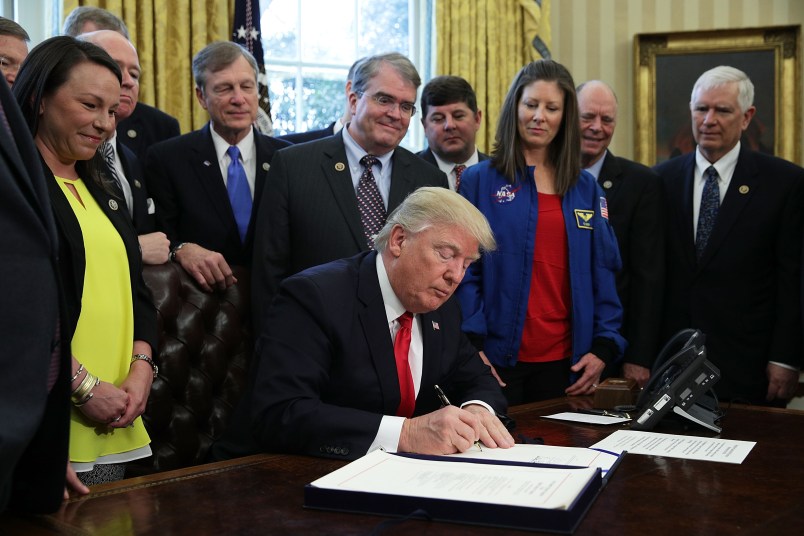President Donald Trump recognized the damage that his aides’ notes had done him in the aftermath of the redacted Mueller report’s release, warning his massive Twitter following to “watch out for people that take so-called ‘notes.’”
As the New York Times reported, the frequency with which Trump White House staffers took notes is significant and starkly different than the practices of their predecessors.
White House employees of yore have been cautious with note-taking, since the Presidential Records Act calls for the preservation of a wide range of documents, and because personal notes or diaries can be forced into the open in times of heightened scrutiny.
In prior administrations, White House workers also tended to act cautiously out of loyalty to the President, fretting that their notes could reveal embarrassing episodes.
In the Trump administration, staffers tend to disregard those concerns in favor of self-protection, worried that the President will abruptly change his mind and contradict things that he previously said, possibly endangering the careers — and legal safety — of involved aides.







That photo looks like Vichy France to me. Except one thing:
For these people, they are doing this willingly.
Many in Vichy were willing
Money and fame. Those are the drivers.
In other admins it was service for the greater good.
Mussolini didn’t like note takers either…
Another reason to hold hearings throughout 2019 and an impeachment inquiry: it keeps Trumpers from doing things to bend or break the law. It’s clear from the Mueller Report that many folks didn’t do things for Trump because they knew they would get in trouble. Do more hearings and impeachment and you might prevent Trump from being able to execute on his worst impulses.
Get him on tape, will ya? Bet he loves that.